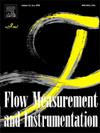Flow pattern recognition for horizontal gas-liquid two-phase flow with a hybrid deep-learning model
IF 2.3
3区 工程技术
Q2 ENGINEERING, MECHANICAL
引用次数: 0
Abstract
In gas-liquid two-phase flow, it is crucial to accurately recognize the flow pattern which serves as the foundation for the study of flow characteristics. Considering the complexity associated with two-phase flow, it is still a great challenge to correctly identify flow patterns. This research proposes an innovative deep learning-based method to categorize flow patterns encountered in gas-liquid flow. A conductance sensor is adopted to acquire the flow information in a horizontal pipeline. The impact of noise on the measured voltage signal is reduced by wavelet threshold processing and sparse coding. For data augmentation, overlapping sampling is conducted. With extracted time-domain features as the input, a hybrid deep-learning model which integrates convolutional neural network and bidirectional long short-term memory is established and trained to identify different flow patterns. Performance comparison between the hybrid model and various deep learning techniques is made. The findings demonstrate that the proposed method's flow pattern identification accuracy reaches 99.85 % indicating that dynamic behavior of the gas-liquid two-phase flow can be well revealed.
基于混合深度学习模型的水平气液两相流流型识别
在气液两相流动中,准确识别流型至关重要,流型是研究流动特性的基础。考虑到两相流的复杂性,正确识别流型仍然是一个巨大的挑战。本研究提出了一种创新的基于深度学习的方法来对气液流动中遇到的流型进行分类。采用电导传感器采集水平管道的流量信息。通过小波阈值处理和稀疏编码降低噪声对电压测量信号的影响。为了增强数据,我们进行了重叠采样。以提取的时域特征为输入,建立并训练了卷积神经网络与双向长短期记忆相结合的混合深度学习模型,用于识别不同的流模式。对混合模型与各种深度学习技术的性能进行了比较。结果表明,该方法的流型识别准确率达到99.85%,能够较好地揭示气液两相流的动态特性。
本文章由计算机程序翻译,如有差异,请以英文原文为准。
求助全文
约1分钟内获得全文
求助全文
来源期刊

Flow Measurement and Instrumentation
工程技术-工程:机械
CiteScore
4.30
自引率
13.60%
发文量
123
审稿时长
6 months
期刊介绍:
Flow Measurement and Instrumentation is dedicated to disseminating the latest research results on all aspects of flow measurement, in both closed conduits and open channels. The design of flow measurement systems involves a wide variety of multidisciplinary activities including modelling the flow sensor, the fluid flow and the sensor/fluid interactions through the use of computation techniques; the development of advanced transducer systems and their associated signal processing and the laboratory and field assessment of the overall system under ideal and disturbed conditions.
FMI is the essential forum for critical information exchange, and contributions are particularly encouraged in the following areas of interest:
Modelling: the application of mathematical and computational modelling to the interaction of fluid dynamics with flowmeters, including flowmeter behaviour, improved flowmeter design and installation problems. Application of CAD/CAE techniques to flowmeter modelling are eligible.
Design and development: the detailed design of the flowmeter head and/or signal processing aspects of novel flowmeters. Emphasis is given to papers identifying new sensor configurations, multisensor flow measurement systems, non-intrusive flow metering techniques and the application of microelectronic techniques in smart or intelligent systems.
Calibration techniques: including descriptions of new or existing calibration facilities and techniques, calibration data from different flowmeter types, and calibration intercomparison data from different laboratories.
Installation effect data: dealing with the effects of non-ideal flow conditions on flowmeters. Papers combining a theoretical understanding of flowmeter behaviour with experimental work are particularly welcome.
 求助内容:
求助内容: 应助结果提醒方式:
应助结果提醒方式:


